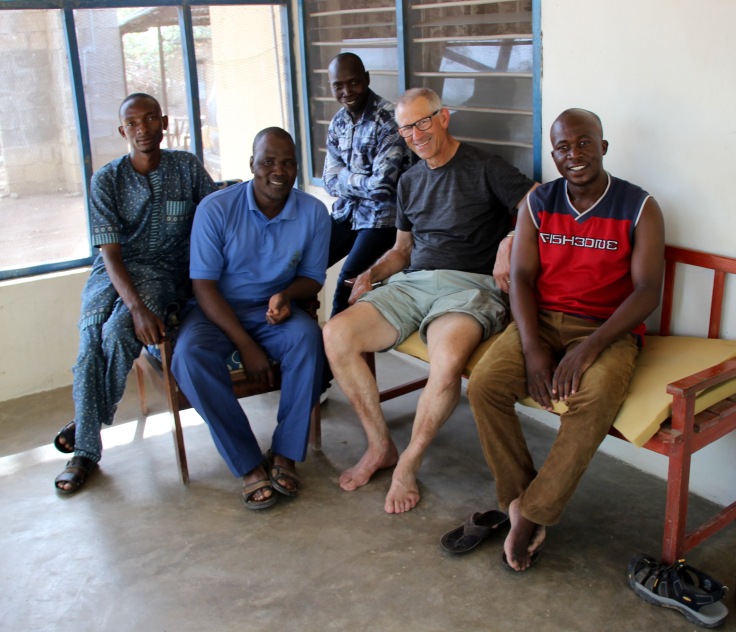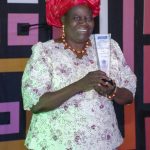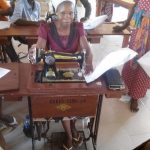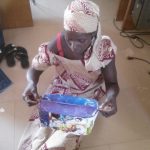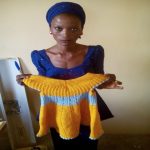By Tim Joseph (Pictures by Pat Krabacher)
It is certainly a profound and life-changing experience to visit Nigeria and work and fellowship with the Nigerian Brethren. I had previously been part of a work camp in February, 2009, (just months before the emergence of Boko Haram) and my experiences then have been a real touchstone in my life ever since. I went this time with my wife Wanda, and I gave special attention and thought to changes in Nigeria in the intervening nine years. I am fully aware that I can only see the surface and maybe one or two layers beneath, and that I carry my own mindset and preconceptions that color everything I see. So here some highly subjective thoughts:
The Nigerians we worked, played, traveled and worshiped with are for the most part as hospitable, optimistic, fun-filled and humorous as I remembered. Their faith in the goodness and protection of God is strong and deep. I believe I saw more sadness in more eyes than I saw nine years ago, which is to be expected from the brutality and losses they have suffered, but their resilience and determination to live happily and trust in God is amazing, to say the least, to this American.
The actual work we American Brethren did in building foundations for that huge church in Michika was negligible, considering the scope of the project and the fact that almost all the work is done by simple muscle and sweat. But there is no doubt our presence was extremely encouraging, inspiring and soul-filling to the people there, for they told us of their appreciation countless times and in many ways. Many people told us that our just being there eased their fear. Folks often commented on the great sacrifice we had made, leaving our comfortable, safe homes and traveling to a place so rough and dangerous. I didn’t feel that way at all, of course, and felt the deepest gratitude and joy to be so well taken care of, so loved, not to mention just getting to be in Africa!
We listened to a lot of stories; that is probably the most important work we did. Hair-raising, heartbreaking stories often. One young man at Michika, Elisha Bitrus Sengere II, told and wrote down for me the story of his escape by motorbike the Sunday morning, 7 September 2014 when the terrorists stormed into Michika shooting and throwing bombs and the people ran to the mountains, to their homes, some to their deaths. We visited many churches and bible schools which had been destroyed and were in various stages of rebuilding. There are many widows and orphans. We stayed at Kulp Bible College, at Kwarhi, which the terrorists had invaded and vandalized, but not destroyed, and we traveled an hour each day to Michika. On that daily trip we went through nine military checkpoints and crossed two bomb-collapsed bridges. For all that, life and commerce do seem to go on fairly normally in that region these days. (But what do I know?)
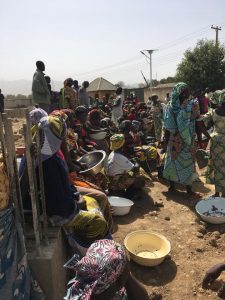 The Nigerian Brethren’s relation/stance toward Muslims is complicated. The church is remarkably faithful to Jesus’ teaching of loving and forgiving our enemies. I can’t even imagine Americans being so faithful and obedient. At the same time, there is a whole lot of bitterness and resentment toward Muslims in Nigerian Brethren I was with. In many places in Nigeria Christians are second-class citizens. Nigeria is the only country with roughly equivalent numbers of Muslims and Christians. They have to get along. Add to that five hundred different languages and hundreds of different tribes, as well as castes…. It is a rough place to have a nation. Is it any wonder the church is so vital to our brothers and sisters of the EYN? Pray for them. Pray hard.
The Nigerian Brethren’s relation/stance toward Muslims is complicated. The church is remarkably faithful to Jesus’ teaching of loving and forgiving our enemies. I can’t even imagine Americans being so faithful and obedient. At the same time, there is a whole lot of bitterness and resentment toward Muslims in Nigerian Brethren I was with. In many places in Nigeria Christians are second-class citizens. Nigeria is the only country with roughly equivalent numbers of Muslims and Christians. They have to get along. Add to that five hundred different languages and hundreds of different tribes, as well as castes…. It is a rough place to have a nation. Is it any wonder the church is so vital to our brothers and sisters of the EYN? Pray for them. Pray hard.
I had the opportunity to go to Chibok for a short visit, where I never dreamed I would be able to go. Markus Gamache had some business up there one Saturday and took Sharon Franzen and I along. I had visited in 2009 and had vivid memories. The military were not happy that we foreigners were there. We went to the Bible School to investigate the location for a bore hole they are planning to dig, and we visited a church and a family nearby. Some huge trees which had provided shade and a gathering place at the Bible School had been cut down by the army as some kind of military precaution. I know there are much deeper harms that have been done at Chibok, but it was painful to see those dead trunks in the hot sun. War is the work of the Devil, no doubt about it.
Another day after work we visited Lassa, where again I had thought I would not be able to go. It was kind of a spur of the moment trip, and we traveled a rough dirt road through forest and bush from Michika to Lassa. I had spent a couple of days there in 2009 and two boys had adopted me and hung with me the whole time–Siliarnad and Paul. I had no way of knowing what had happened to them when Boko Haram overran Lassa, but I knew teenage boys would have been prime targets for killing or kidnapping. We arrived at Lassa EYN #1 church (which was rebuilt by Muslim-dominated Borno State–there’s a story there which I do not know) and there were few people in the church compound, but there was a boy sitting alone in a large courtyard playing a drum. In conversation with the boy I soon discovered that he is a younger brother of Siliarnad. Siliarnad was off in Yola taking a college entrance exam and Paul was alive and well in the town. Some days God just takes a direct hand.
That’s enough for now. Get me going and it’s hard to stop…. Tim Joseph


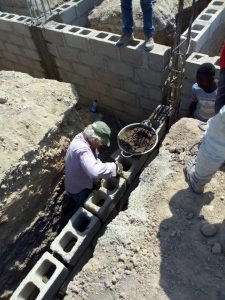
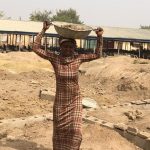
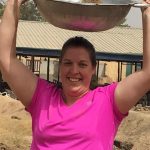
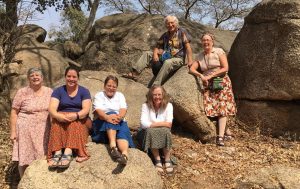
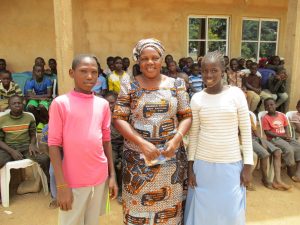
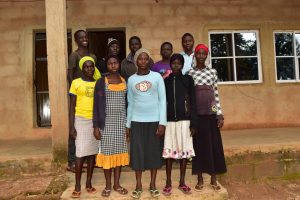
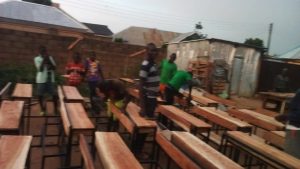
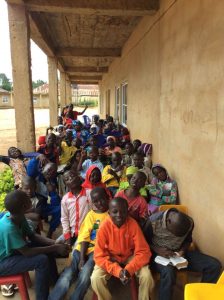
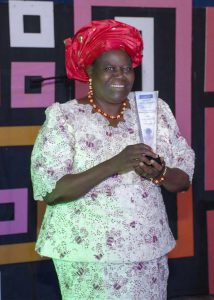
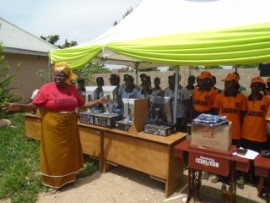
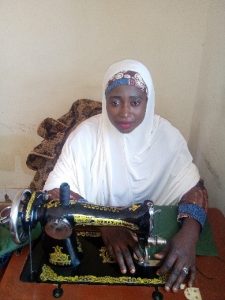
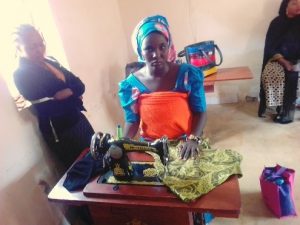
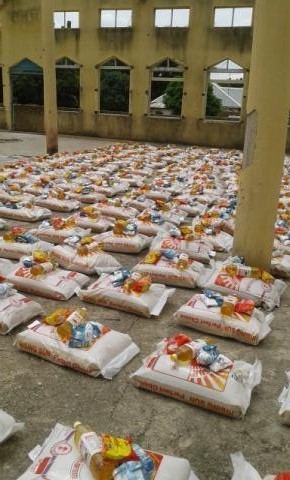
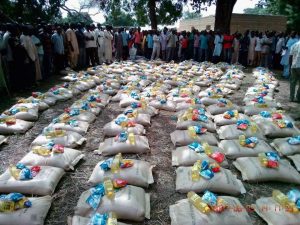
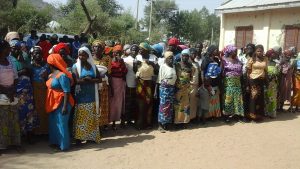
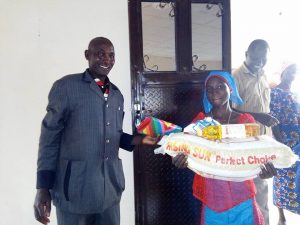
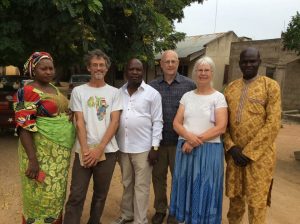
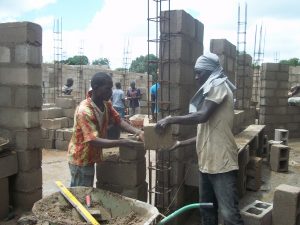
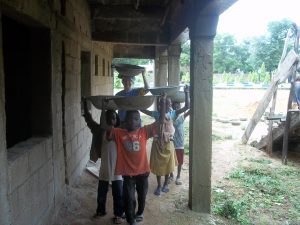
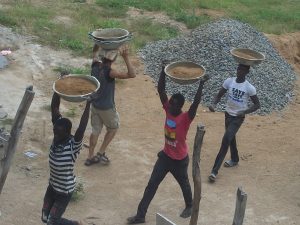
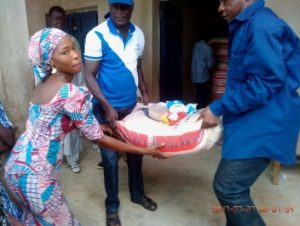
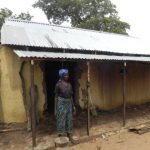
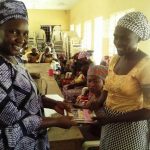
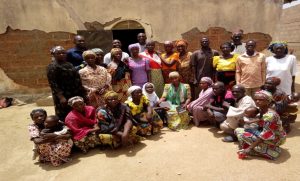
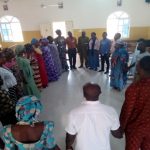
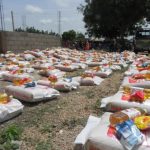
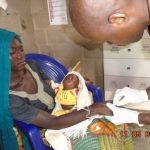
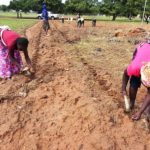
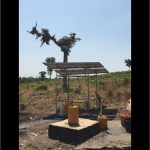

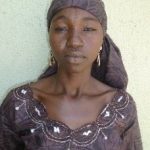
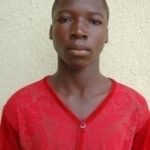
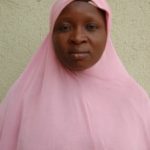
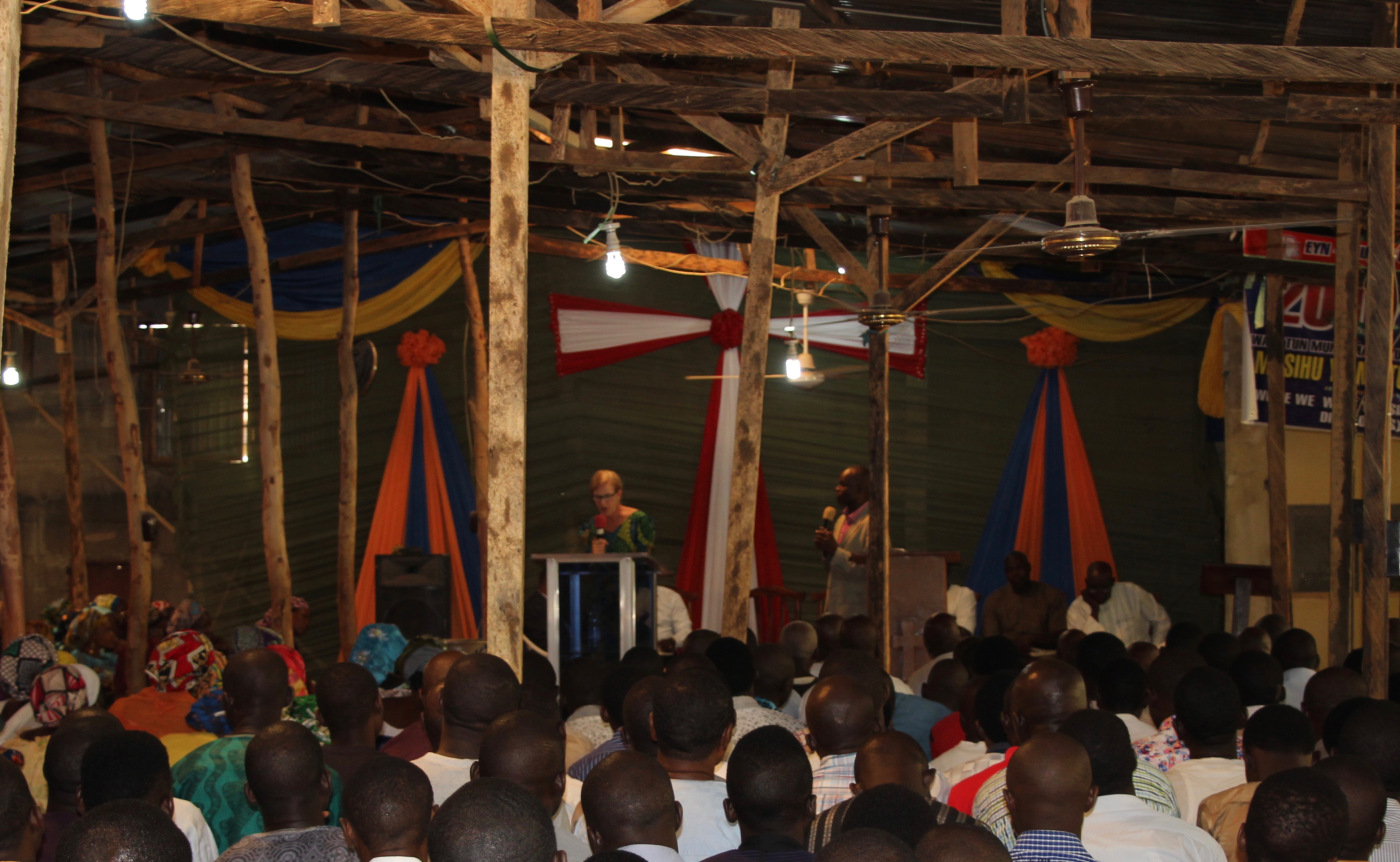
 In the churchyard outside the temporary building, a new one is underway – the walls are going up as the funds come in. They were pleased to share that they had qualified for one of twenty $5000. grants from the CoB U.S.
In the churchyard outside the temporary building, a new one is underway – the walls are going up as the funds come in. They were pleased to share that they had qualified for one of twenty $5000. grants from the CoB U.S. Dave presenting the keys to the second tractor (for use in the Kwarhi area) on behalf of the CoB U.S.) to E.Y.N. President Joel Billi.
Dave presenting the keys to the second tractor (for use in the Kwarhi area) on behalf of the CoB U.S.) to E.Y.N. President Joel Billi.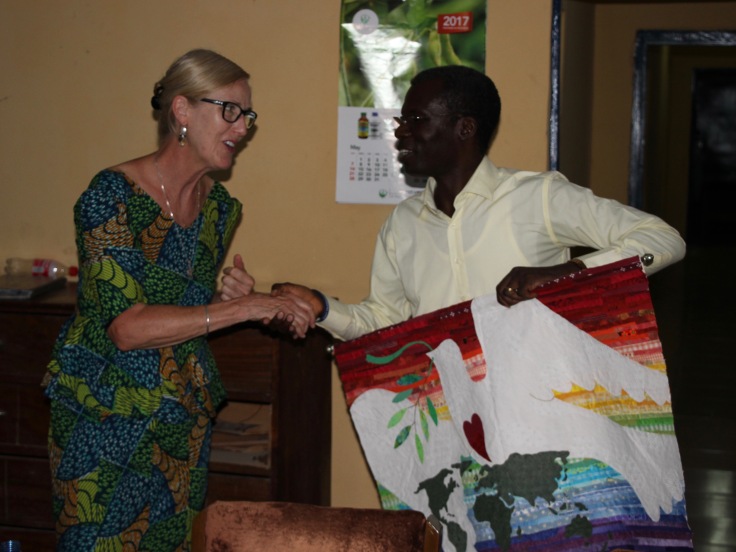 Demonstrating popping corn at E.Y.N. Headquarters.
Demonstrating popping corn at E.Y.N. Headquarters.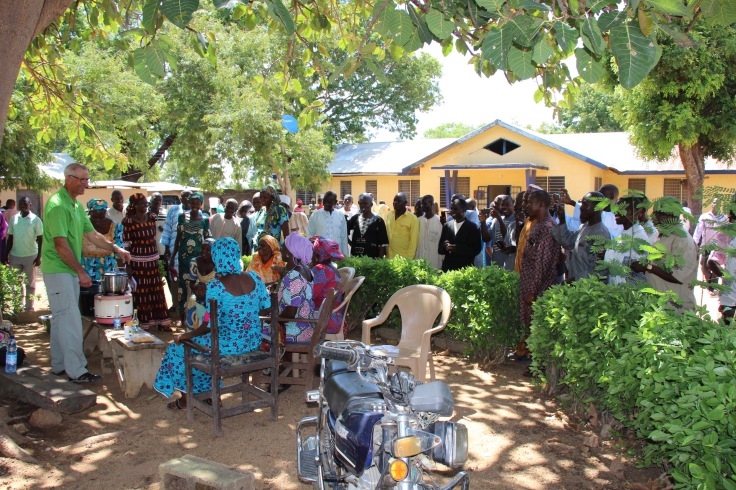 Dinner and discussion with Kulp Bible College leadership – hosted by KBC President Dauda Gava.
Dinner and discussion with Kulp Bible College leadership – hosted by KBC President Dauda Gava.